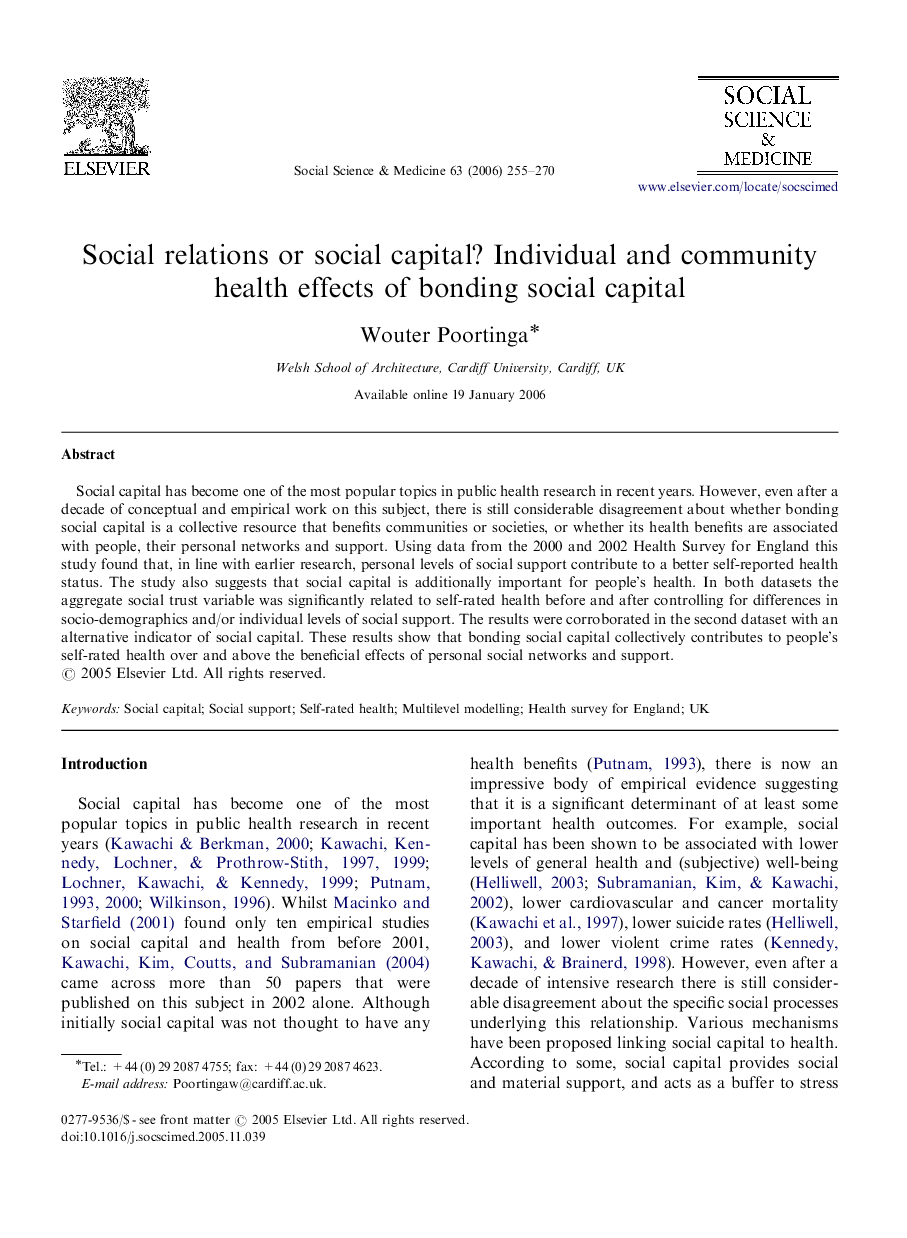| Article ID | Journal | Published Year | Pages | File Type |
|---|---|---|---|---|
| 954930 | Social Science & Medicine | 2006 | 16 Pages |
Social capital has become one of the most popular topics in public health research in recent years. However, even after a decade of conceptual and empirical work on this subject, there is still considerable disagreement about whether bonding social capital is a collective resource that benefits communities or societies, or whether its health benefits are associated with people, their personal networks and support. Using data from the 2000 and 2002 Health Survey for England this study found that, in line with earlier research, personal levels of social support contribute to a better self-reported health status. The study also suggests that social capital is additionally important for people's health. In both datasets the aggregate social trust variable was significantly related to self-rated health before and after controlling for differences in socio-demographics and/or individual levels of social support. The results were corroborated in the second dataset with an alternative indicator of social capital. These results show that bonding social capital collectively contributes to people's self-rated health over and above the beneficial effects of personal social networks and support.
